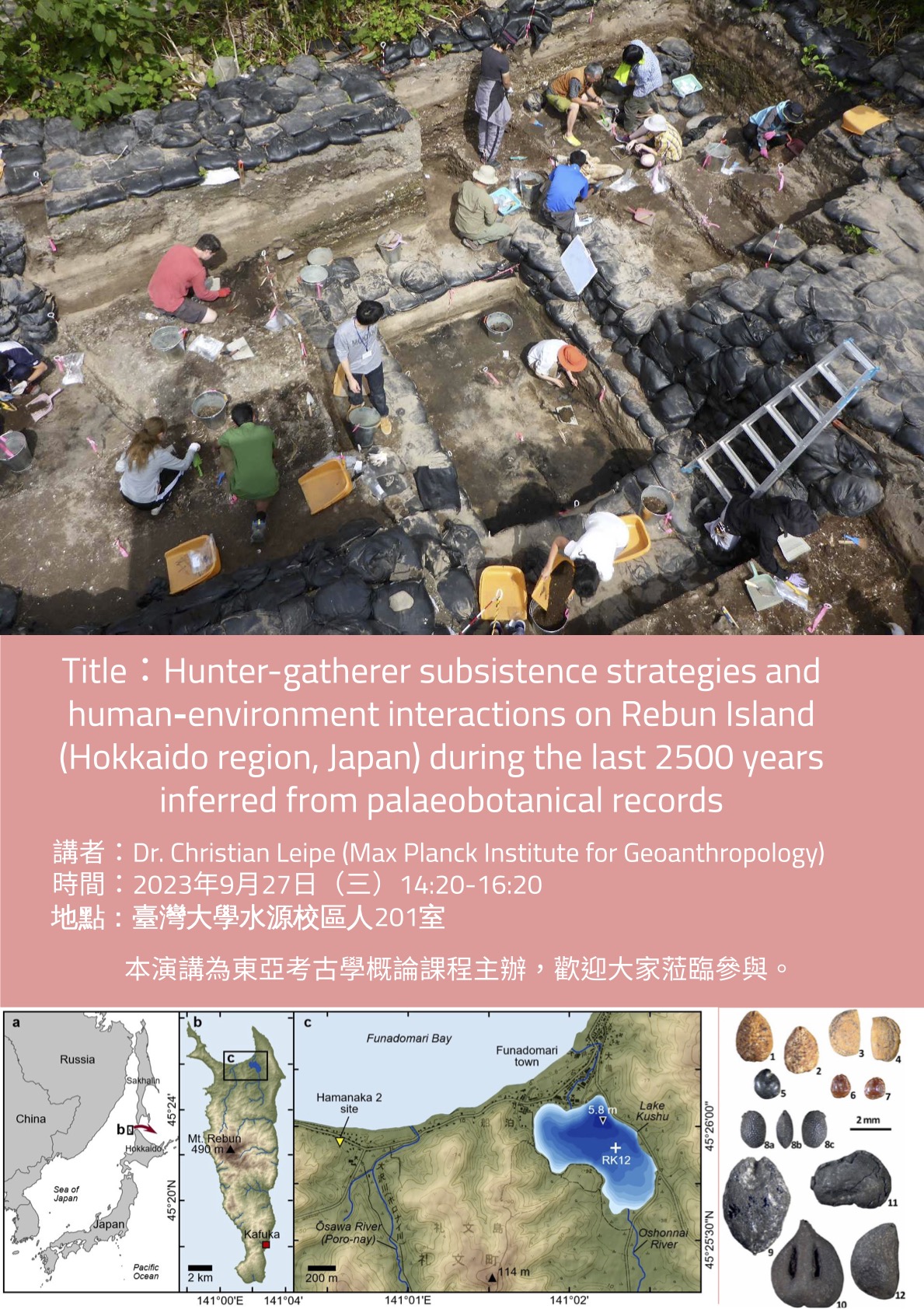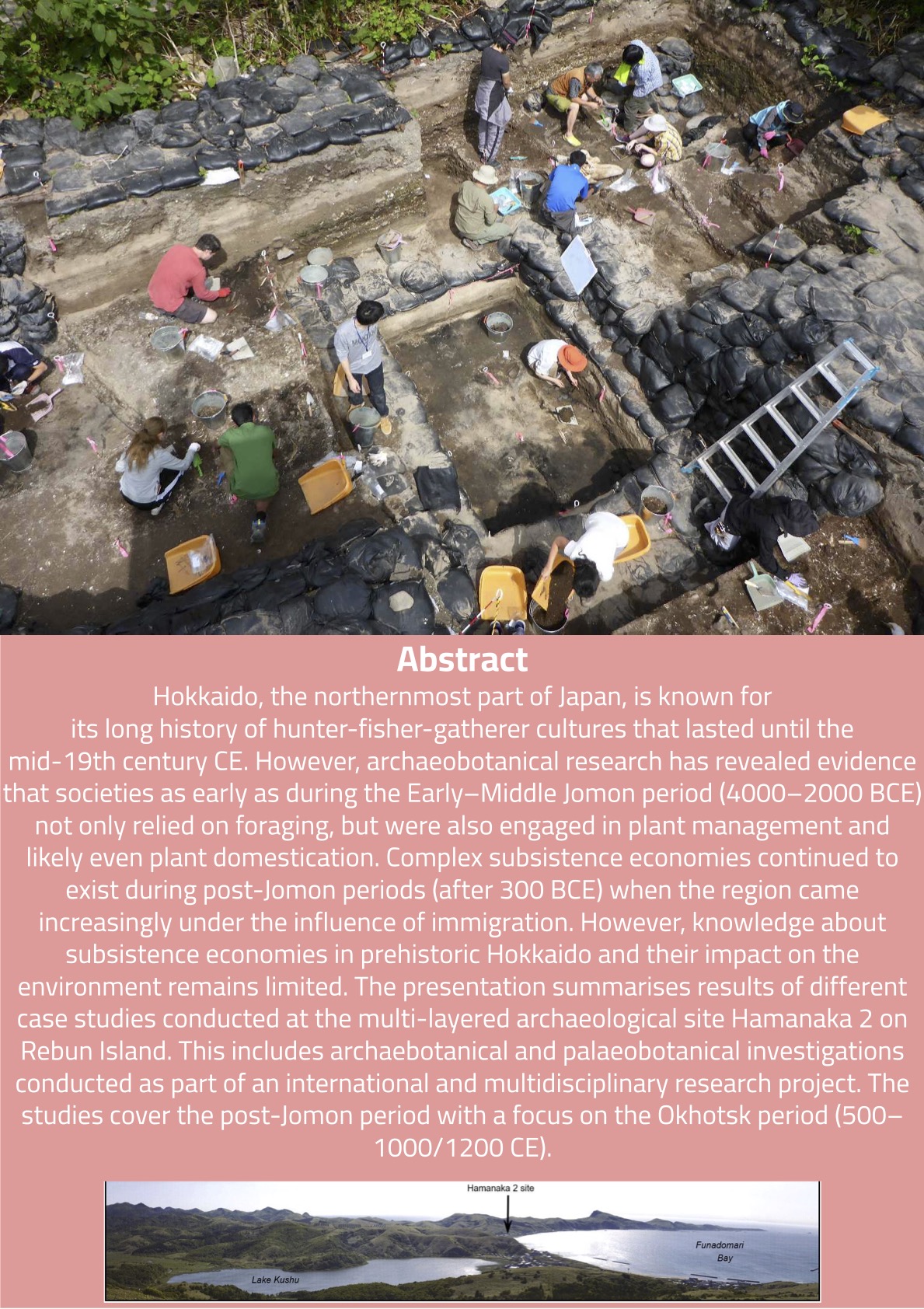人類學系學術演講
| 講 題 | Hunter-gatherer subsistence strategies and human-environment interactions on Rebun Island (Hokkaido region, Japan) during the last 2500 years inferred from palaeobotanical records |
| 講 者 | Dr. Christian Leipe (Max Planck Institute for Geoanthropology) |
| 時 間 | 2023年9月27日(三)14:20-16:20 |
| 地 點 | 臺灣大學水源校區人201室 |
| 演講簡介 | Hokkaido, the northernmost part of Japan, is known for its long history of hunter-fisher-gatherer cultures that lasted until the mid-19th century CE. However, archaeobotanical research has revealed evidence that societies as early as during the Early–Middle Jomon period (4000–2000 BCE) not only relied on foraging, but were also engaged in plant management and likely even plant domestication. Complex subsistence economies continued to exist during post-Jomon periods (after 300 BCE) when the region came increasingly under the influence of immigration. However, knowledge about subsistence economies in prehistoric Hokkaido and their impact on the environment remains limited. The presentation summarises results of different case studies conducted at the multi-layered archaeological site Hamanaka 2 on Rebun Island. This includes archaebotanical and palaeobotanical investigations conducted as part of an international and multidisciplinary research project. The studies cover the post-Jomon period with a focus on the Okhotsk period (500–1000/1200 CE). |
本演講為盧柔君老師開設之東亞考古學概論課程主辦,毋須報名,歡迎自由參加
Members of the university community and interested friends are welcome to attend. No registration is needed.



